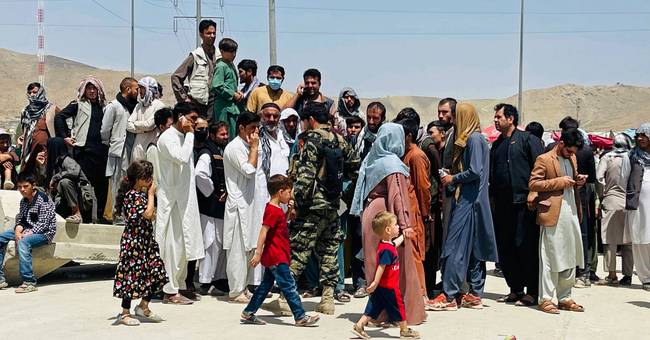The statement by Enamullah Samangani, a member of the Taliban's Cultural Commission, is the first comment on what the Taliban regime may look like.
The group is negotiating with representatives from the country's fallen government, but no formal agreement has been announced.
- The Islamic Emirate (the Taliban's name for Afghanistan, editor's note) does not want women to be victims.
They should be in the government according to Sharia law, says Samangani according to AP.
The statement should be seen in the light of the Taliban's harsh interpretation of Sharia law, which means, among other things, that women should not stay in public spaces or seek attention and avoid connections with men.
An "all-Islamic leadership"
When the Taliban came to power in the 1990s, women were largely confined to their homes.
But now the movement seems to want to convey a different picture.
A female TV journalist from the news channel Tolo News was recently allowed to interview a Taliban and the movement has rejected rumors that women have been denied entry to a university in the city of Herat.
Samangani states that the structure of the government is not yet completely clear, but that it will be a "completely Islamic leadership".
He says the people of Afghanistan are already aware of the wording of Sharia law and are aware that the Taliban expect it to be obeyed.
- Our people are Muslims.
We are not here to force them into Islam, says Samangani according to AP.
What Enamullah Samangani means by amnesty is not entirely clear, but other Taliban have said they will not attack people who have previously worked for the government or other countries.
At the same time, there is information about a list of people they should seek out due to previous collaborations, according to AP.
The expert: "Reasonable but not logical"
The statement is a clear symbolic position, according to Cecilia Hull Wiklund, project manager for Afghanistan Assistance at the Folke Bernadotte Academy.
- The Taliban want to send signals to reduce fear and open up for diplomatic dialogue.
The goal may be for the outside world to start negotiating with the group and recognizing their state.
At the same time, the movement wants to prevent women and activists from fleeing to keep as many people as possible in Afghanistan, says Hull Wiklund.

